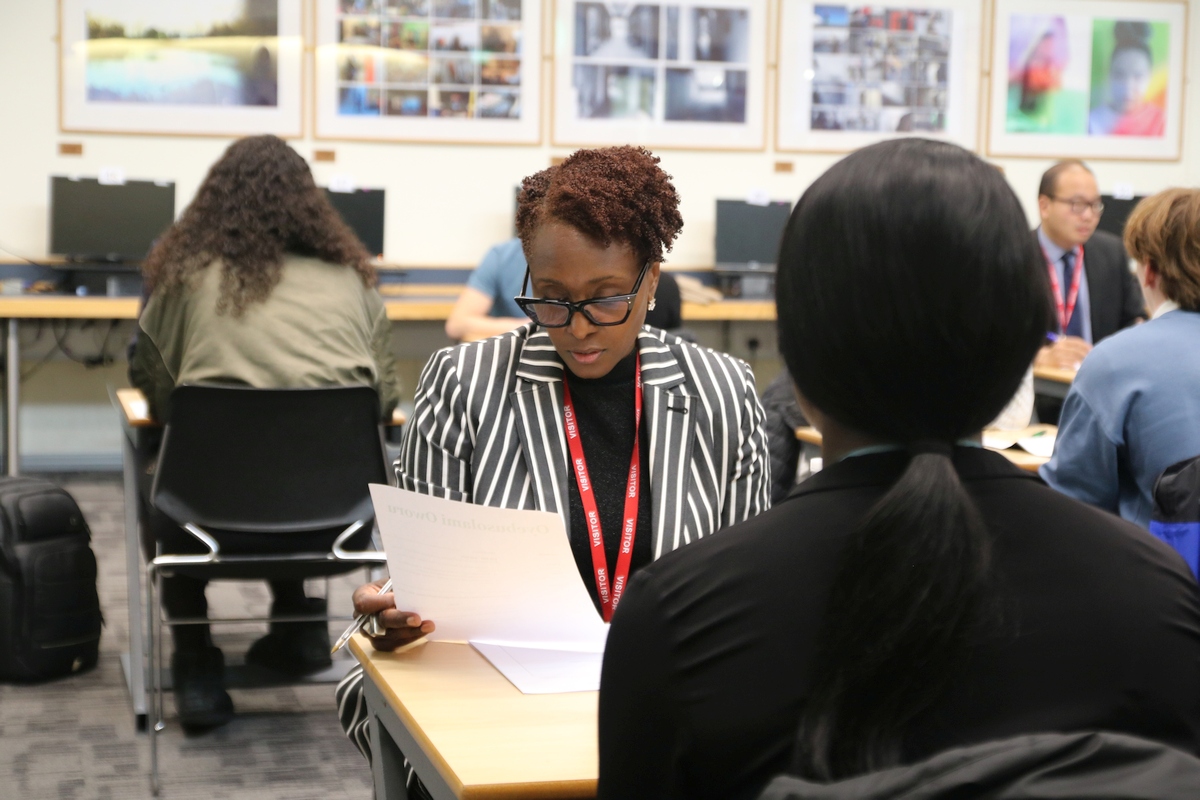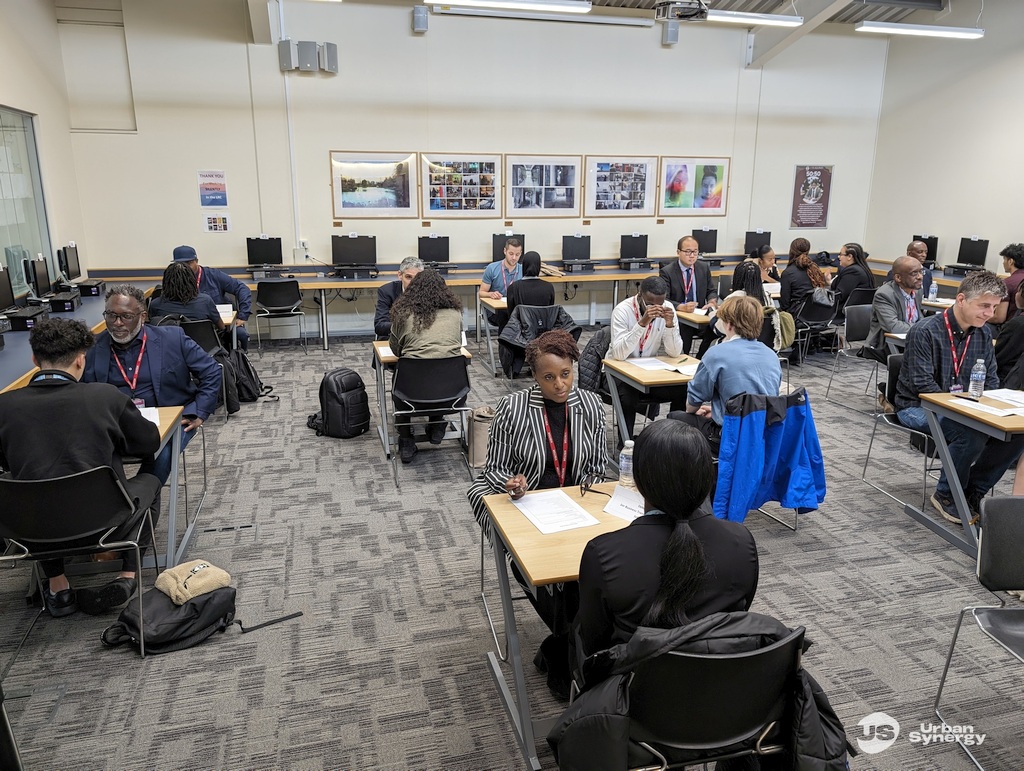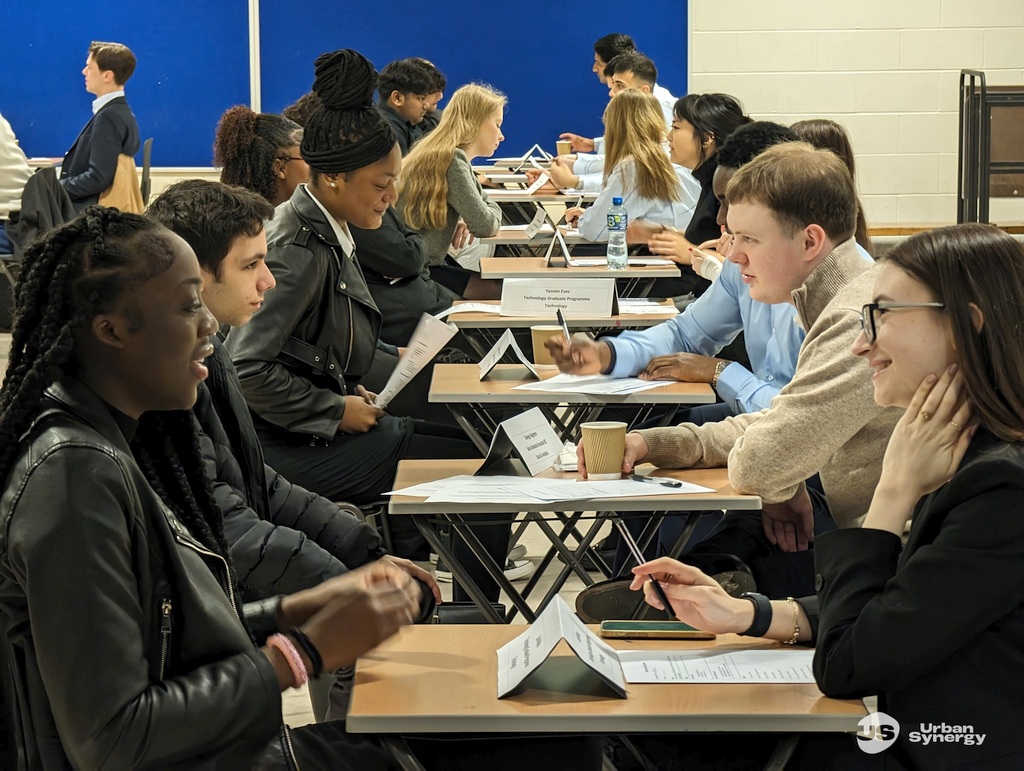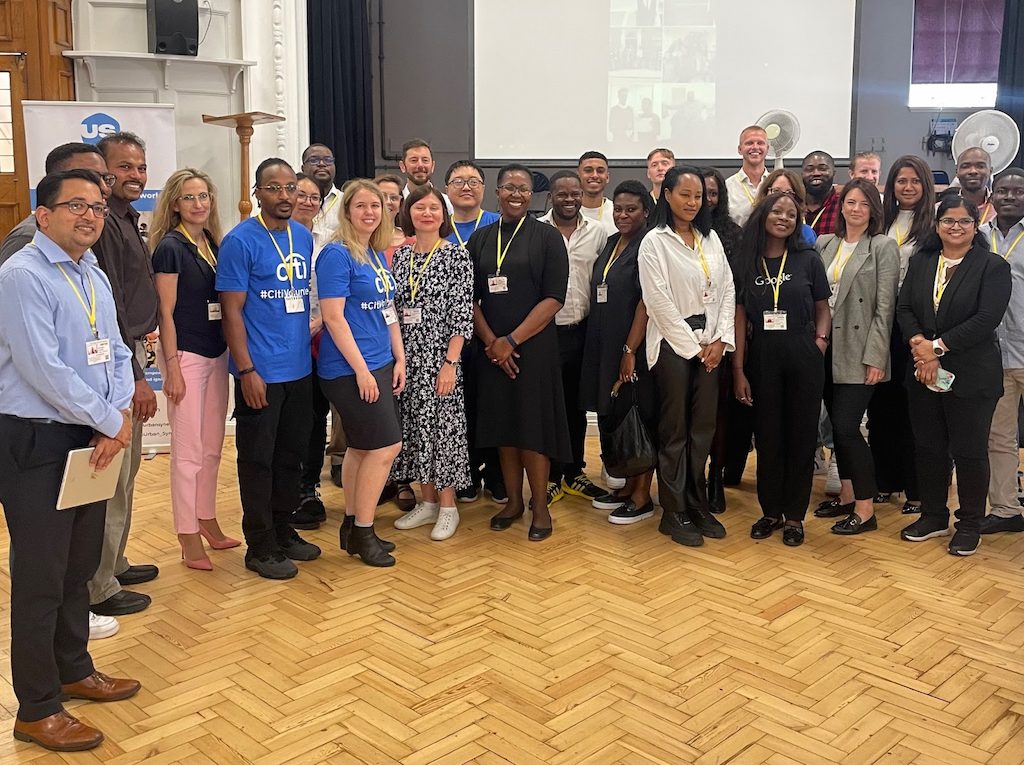Mock Interviews
Mock Interviews help prepare young people for the workplace
Everyone remembers their first job interview...
Who helped you prepare?

Mock Interview practice
Mock interviews help students develop their interview skills with real professionals and leave full of confidence.
- Hour-long slots for 2 mock interviews with feedback.
- Speed mentoring with professionals.
- School Year 10, 11, 12 and 13 students.
- Available throughout the school year.
If you would like to have a mock interview event at your school or wish to volunteer as an interviewer, please use the Contact Us button below to send us a message.
Recent Mock Interview Events
What are mock interviews?
Mock interviews are practice sessions that simulate real-world job interviews. They provide students with a safe and controlled environment to practice with a volunteer interviewer who can provide constructive feedback to help them develop.
Why are mock interviews essential to student success?
Whether it’s that first interview for a Saturday Job, a summer internship, apprenticeship or taking the first steps into the real world of work, a practice interview will help young people be better prepared for the real thing.
Mock interviews can demystify the interview process and help students by:
Reducing anxiety and building confidence
The interview process can be incredibly nerve-wracking. By experiencing the format, question types, and pressure in a low-stakes setting, students can significantly reduce their anxiety and build confidence in their ability to handle real interviews effectively.
Articulating skills and experiences
Learning to clearly and concisely talk about their qualifications, projects, and experiences relevant to a potential job.
Interview preparation
Students should prepare for the interview beforehand. Begin by doing some research on the company's website, this demonstrates your research skills and that you have genuine interest in the job. Prepare some examples of your experience to use in the interview, and ensure your CV has no spelling or grammatical errors.
Answering common interview questions
Practicing responses to typical questions ("Tell me about yourself", "What are your weaknesses?", "Why do you want this job?").
How to handle difficult questions
Learning strategies for tackling behavioral questions, like the STAR method (Situation, Task, Action, Result).
Non-Verbal communication
Receiving feedback on body language, eye contact, posture, and overall professional demeanour.
Provide students with constructive feedback
This is an essential part of mock interview practice. Our volunteers take notes during the interview and provide constructive and actionable feedback to students including:
- Strengths: What the student did well.
- Areas for Improvement: Specific weaknesses in answers, communication style, or preparation.
- Clarity and Conciseness: Whether answers were easy to understand and to the point.
- Overall Impression: The general impression the student projected, including their body language, eye contact and general demeanor
This feedback helps students to identify blind spots and make targeted improvements they wouldn't necessarily notice on their own.
What else can students learn in mock interviews?
Many students assume that they will be assessed entirely by their CV, but there are employers use interviews to learn more about the person:
- Understanding Employer Expectations: Mock interviews provide insight into what employers are actually looking for beyond the CV. Students learn about the importance of showing enthusiasm, asking thoughtful questions, demonstrating cultural fit, and showcasing problem-solving skills.
- Improving Professionalism: From appropriate attire (even if virtual) to punctuality and follow-up etiquette (like sending a thank-you note, which can be practiced), mock interviews reinforce the importance of professional conduct throughout the hiring process.
Mock interviews bridge the gap between academic learning and the practical demands of the professional job market. They are a critical developmental tool that equips students with the skills, confidence, and self-awareness needed to navigate the interview process successfully and ultimately launch their careers.



